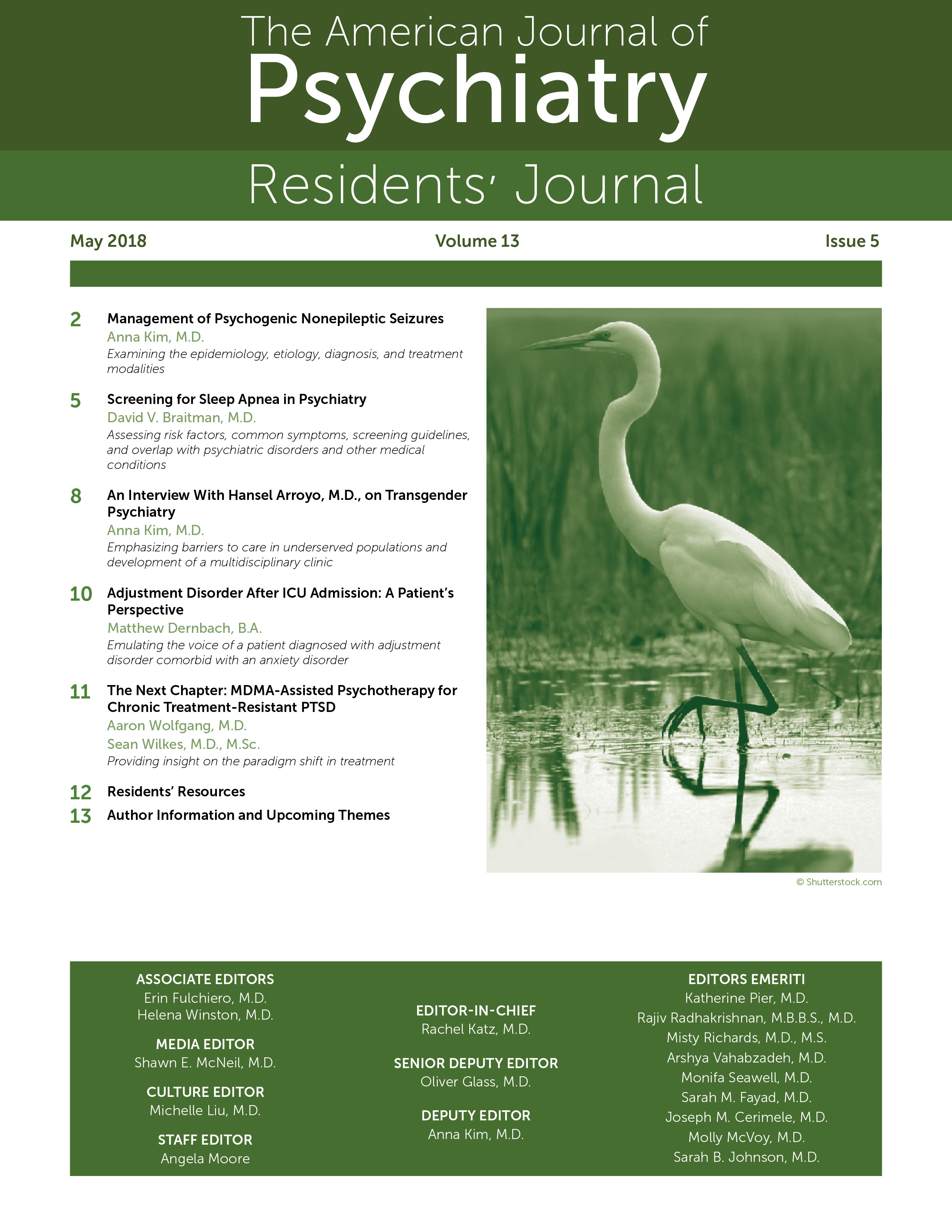Emulating a patient’s perspective in a written narrative is an effective exercise for medical students and other medical trainees to learn to empathize with their patients. The following is an example of such a narrative, compiled from several interviews and written to emulate the voice of a patient diagnosed with adjustment disorder with anxiety following a protracted stay in the intensive care unit. All details in the narrative have been changed to protect individual patients’ privacy.
Before we start, I think this story would go better with a nice vodka tonic. That was a joke, you know. Though I don’t know why I keep telling it, the nurses never seem to laugh. No, I haven’t had one of those in a while. Still, I suppose I’m on a liquid diet, this brown stuff. Wouldn’t recommend it.
You know, I’ve been in and out of here since the year began. How do you like that? At one point, I was dead. Yeah, 10 minutes they were doing CPR. And then the whole bowel thing and the surgery. I didn’t even know the things existed that I had. Anyway, I was in the ICU for a long time. The bill’s got to be somewhere in the hundreds of thousands by now, easy. Just this morning, I was transferred down here. My old room was a lot better, no windows in this one. You know, I was supposed to be at the beach right now, and I’ve had to postpone the trip three times. How do you like that?
What I wanted out of life? Well, I saw my dad growing up in the 70s and 80s. That was the life: nice corporate job, weekends at the country club, he even retired early. Me, I went to a local college and graduated with a degree in accounting, and my dad was on the board of trustees at the time. So, he sat in the front row at graduation. He gave me a big hug after that. Family moments like that—that’s what I wanted.
So, I met my ex-wife at a company Christmas party. We got married in 1997—I can’t remember the date. One of the doctors tried explaining the memory thing to me, wanted to show me pictures of my brain. But I really have no interest in seeing those. Said it had to do with alcohol. I have to quit now. I know I do. But all my life—alcohol—it was like playing golf. It’s relaxing. It was just something I liked doing.
Anyway, we didn’t end up having kids. Me and her, I suppose we just grew apart. We got divorced 3 years ago. Looking back, sometimes I think that I put too much into my work. I had to bill 300% of my salary, and maybe it got a little out of hand. I regret that. What are you gonna do?
So, this year hasn’t been the best. I’m still alive, at least. Sometimes, though, it gets a bit much. I walk with the PT folks a few times around the unit every day, and the nurses come in and out, but usually I’m just lying here. And I get anxious sometimes, wondering when I’m going to get out of here. I try to sleep, but they keep waking me up. I know it’s their job. I mean, it’s the hospital, what do you expect?
